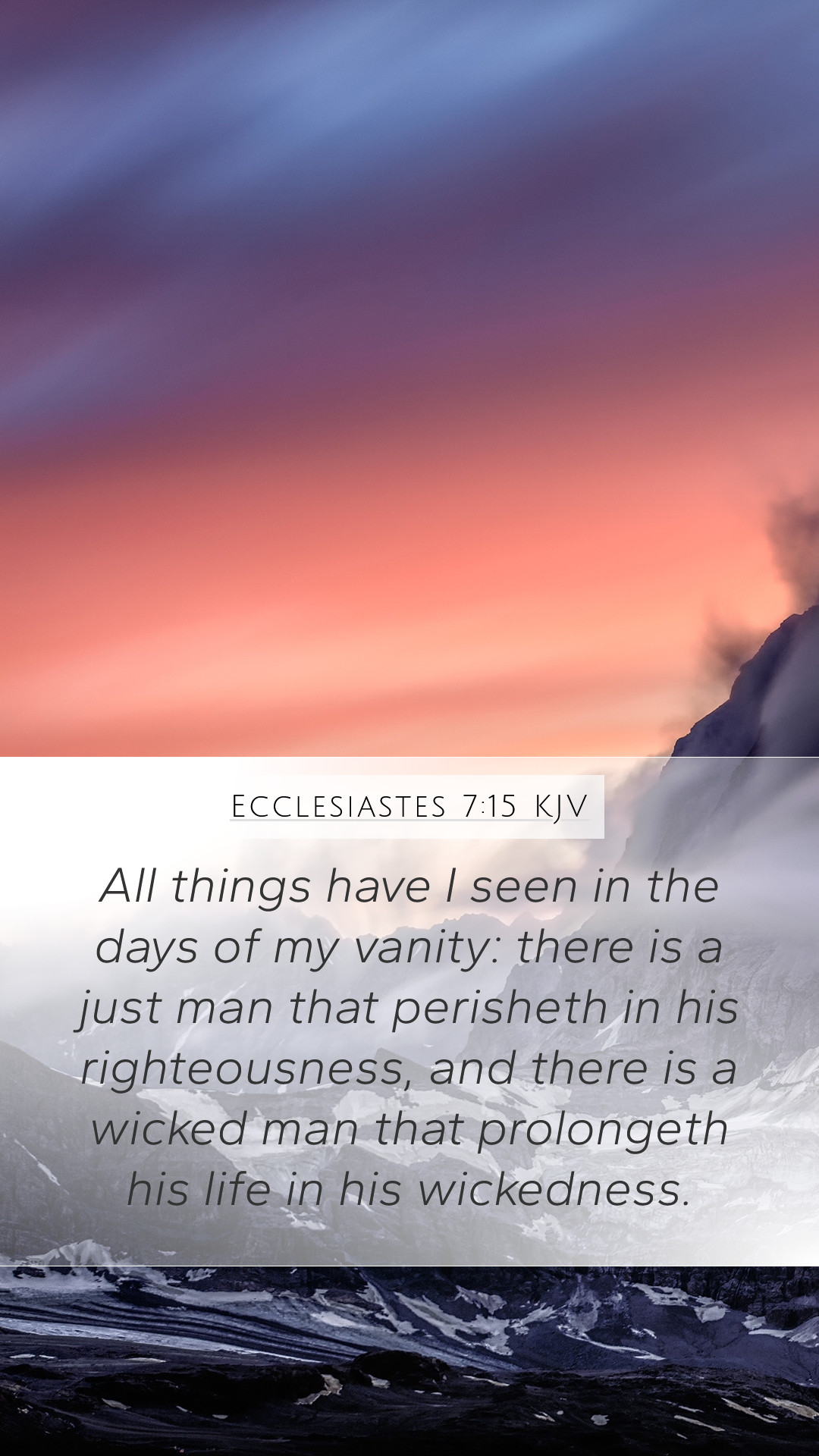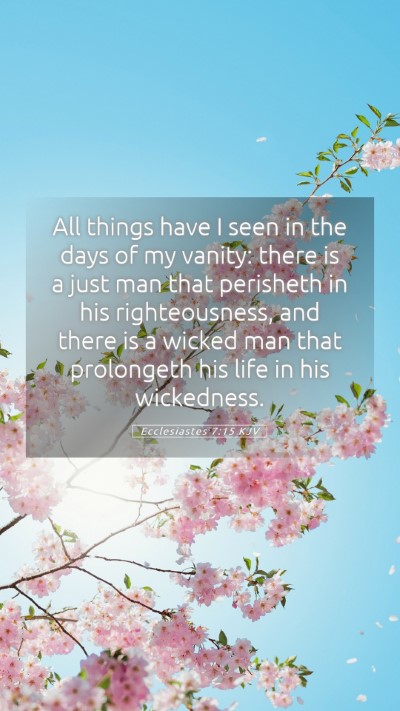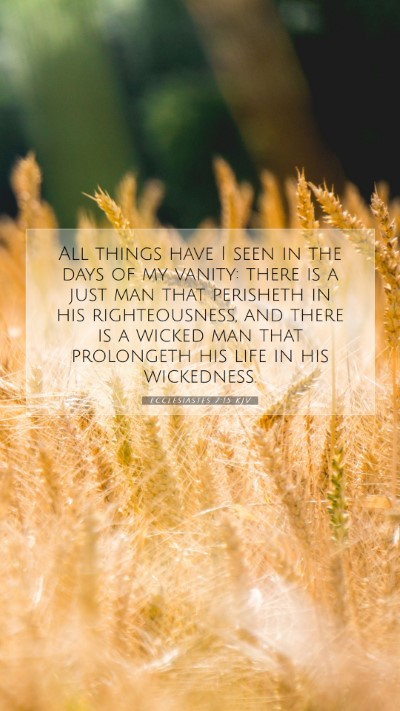Understanding Ecclesiastes 7:15
Bible Verse: “All things have I seen in the days of my vanity: there is a just man that perisheth in his righteousness, and there is a wicked man that prolongeth his life in his wickedness.” - Ecclesiastes 7:15
Bible Verse Meaning
This verse introduces us to a profound observation about the nature of life and justice. It highlights the perplexing reality that sometimes, those who live righteously seem to suffer while the wicked appear to thrive.
Insights from Commentaries
-
Matthew Henry:
Henry suggests that the Teacher (Koheleth) is reflecting on the apparent injustices within life. He emphasizes that the righteous may suffer even in their goodness while the wicked enjoy a long life. This observation serves as a catalyst for deeper reflection on God’s providence and the moral order of the world.
-
Albert Barnes:
Barnes points to the contradictions observed in life. He explains that this verse underscores a significant enigma about justice. The righteous man, despite his moral standing, may face loss and suffering, while the wicked seem to enjoy prolonged lives. This leads one to question the fairness of life and God's judgment.
-
Adam Clarke:
Clarke elaborates on the contrast between the just and the wicked. He notes that the reality presented in this verse may not align with common perceptions of justice. The Teacher conveys a sense of vanity in human existence, stressing that appearance can be deceiving, and true justice may not be evident in this life.
Key Themes and Reflections
Ecclesiastes 7:15 delves into several key themes central to understanding Scripture and biblical exegesis:
- The Nature of Justice: The verse provokes a discussion about how justice operates in the world, where often the opposite seems to be true.
- Life's Vanity: The 'days of vanity' hints at life's fleeting nature and the sometimes absurd notions of equity.
- Righteousness vs. Wickedness: The stark comparison serves as a reminder that the external circumstances do not always reflect divine favor or disfavor.
Application in Bible Study
For those seeking to apply Ecclesiastes 7:15 to daily life or in Bible study groups, consider focusing on:
- Reflection Questions: What does this verse teach us about the nature of God’s justice? How should it influence our understanding of righteousness?
- Historical Context: Explore similar teachings in wisdom literature, discussing the uncertainties faced by righteous figures.
- Practical Applications: How can we maintain faith and righteousness in the face of life's apparent injustices?
Additional Bible Cross References
- Job 21:7: Job’s lament on the prosperity of the wicked.
- Psalms 73:3: A heartfelt struggle regarding the fate of the wicked compared to the righteous.
- Matthew 5:45: Reflections on God's impartiality in bestowing blessings, even on the unrighteous.
Conclusion
Understanding Ecclesiastes 7:15 requires a deep dive into bible verse meanings and comprehensive analysis of its context. By engaging with commentaries and seeking Bible study insights, one can navigate the complexities of justice and righteousness in a fallen world.


